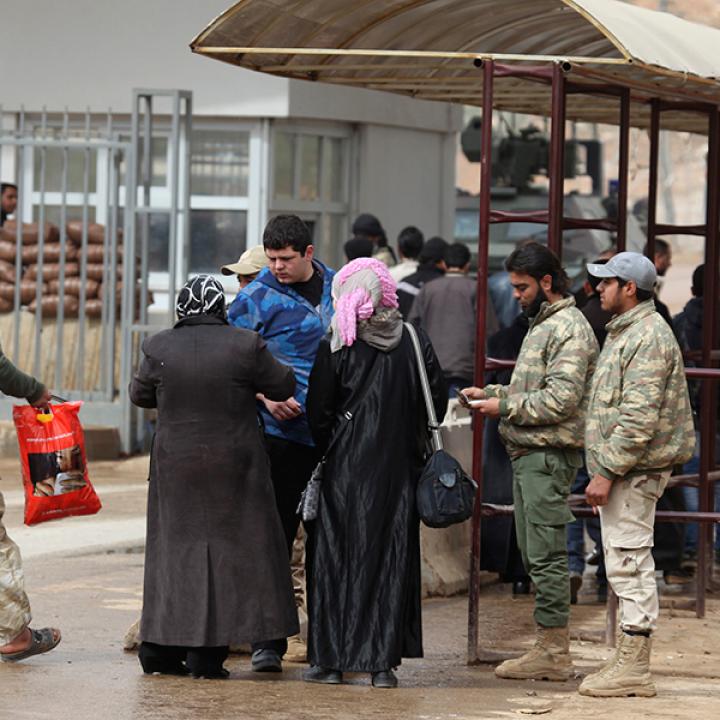

Expanding strikes to targets northeast of Aleppo would help Washington and its allies exploit fissures between ISIS and local tribes.
Achieving Washington's objective of destroying ISIS while not benefiting the Bashar al-Assad regime will depend on not only hitting the right targets in the right order, but reaching out to Arab tribes as well. At first glance, most of the targets hit so far in eastern Syria (other than the Khorasan base) are far away from moderate controlled areas in the north. This is because of the Obama administration's desire to halt ISIS's offensive on Kurds and degrade ISIS's capabilities down the Euphrates valley. The regime, which has forces garrisoned around the central Syrian town of Palmyra, would seem set to benefit from such an attack.
But a closer look reveals a far more complicated picture. The regime's offensive has stalled in many areas of Syria, and their forces have been pushed back off the southern Golan frontier. While Assad has expressed a desire to retake Raqqa, he is unlikely to be able to retake and hold territory in eastern Syria. That's why Assad, sadly, continues to rely on poison gas and Scud missiles to project his power and why President Obama backs the Syrian moderate rebels.
Expanding strikes to ISIS targets northeast of Aleppo would allow moderate forces to retake territory and eventually push ISIS back down the Euphrates valley. A key element in this attack, and foreign policy twofer, would be to destroy or interdict ISIS oil production and sales to the Assad regime.
Such well-placed targets would allow moderate outreach from the north and south to the Arab tribes that historically dominate eastern Syria. One key will be reaching out not only to tribal leaders, but also to their youthful members who have fallen prey to ISIS influence. Since ISIS has openly clashed with tribes south of Deir Ezzor, last night's strikes in that area should help the United States and its allies exploit fissures between ISIS and tribes akin to those in Iraq during that country's "Sunni Awakening."
Andrew J. Tabler is a senior fellow at The Washington Institute and author of In the Lion's Den: An Eyewitness Account of Washington's Battle with Syria. This article was originally published as part of a "Room for Debate" roundtable on the New York Times website.
New York Times



